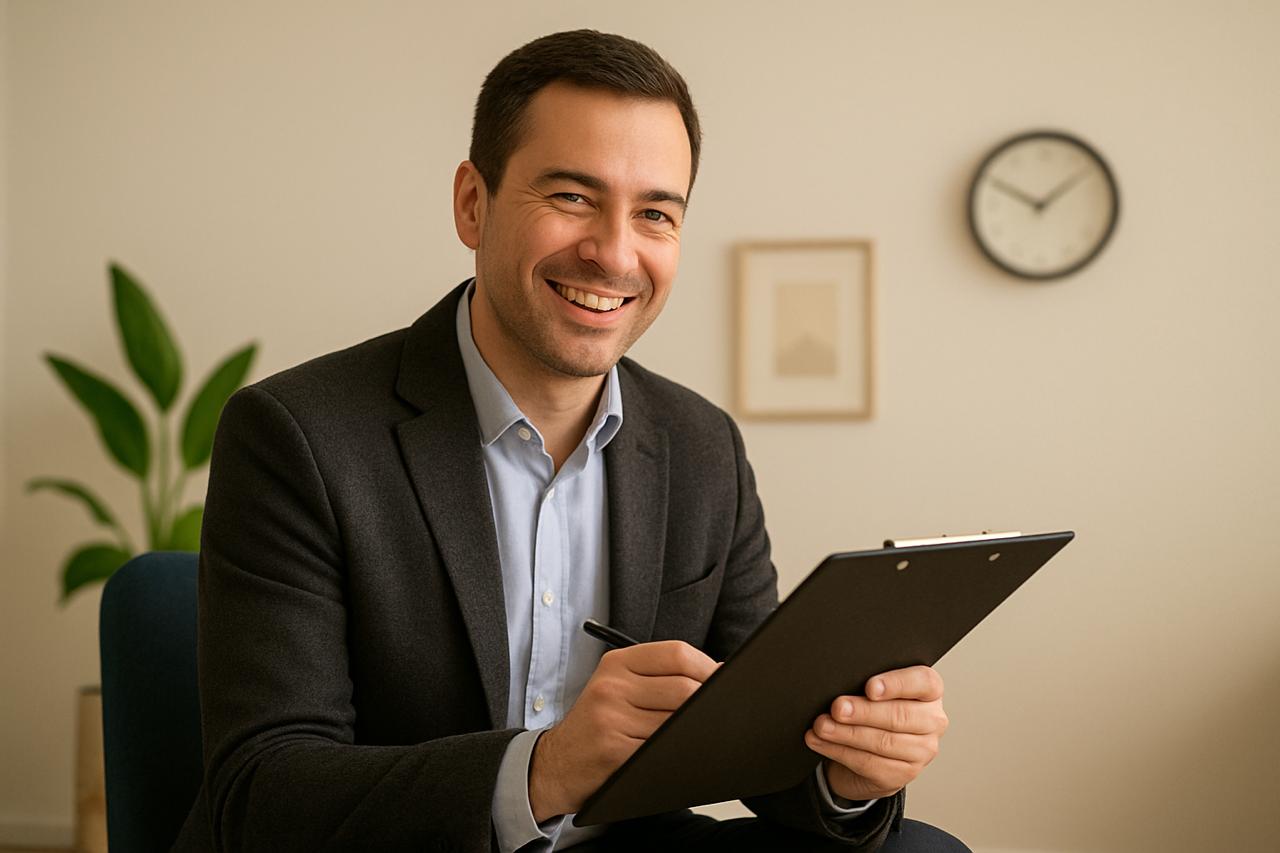My First Client Wasn’t the Hardest Part
The scariest part of my very first counselling session wasn’t my client’s problem.
It was my own self-doubt.
A month ago, I sat in my chair as a psychologist for the very first time, anticipating my client's arrival. My notes were prepared, my hypothesis was distinct, but my heart was pounding. If you are a fresher joining this domain, chances are you know that inner voice:
"Am I ready? Can I really make a difference?"
And here's the truth: that's alright.
Every single one of us will encounter this moment. It's not whether you are nervous that matters, but what you do to prepare for it.
Beyond Theory: What Really Prepares You for the Room
Our academic years teach us theories, models, and techniques. But skill and confidence only come through when you sit opposite a human being who is trusting you with his/her story. That is when all that you studied gets its real meaning.

Following are three things that helped me prepare for my first day as a practicing psychologist:
1. Get Your Basics Airtight
Never underestimate the basics. Case history, Mental Status Examination (MSE), diagnosis, testing, therapy models—master them. They are your guide when you are lost in session.
2. Select Internships Carefully
All internships are not created equal. Work at places where actual work is done. Seek out labs instead of landing up at institutions where you just pay to sit through lectures. Hands-on experience instills confidence in a way nothing else does.
3. Work With an Experienced Psychologist
Academia will teach you what to do, but mentors will teach you how. Working under a seasoned professional will provide you with in-practice tips that you'll never get from textbooks.
The Power of a Network
Therapy is a team work. Get yourself surrounded with the right people—psychologists, psychiatrists, special educators, social workers, lawyers. A professional network becomes your best asset when you're dealing with tricky situations, ethical issues, or difficult cases.
A Simple Analogy
Entering therapy is like learning to drive. A licence doesn't make you a good driver—you don't get better until you actually get in the car.
And in my situation, I likely need to do more of that… because my driving abilities could use some therapy as well.
Final Thoughts
If you're just beginning, remember: nervousness doesn't mean you're not prepared. It means you care. Your voice will stabilize over time, your presence will expand, and your self-doubt will quietly make room for confidence.
So take that initial step. Sit in the chair. Trust yourself. And most importantly, keep driving.

